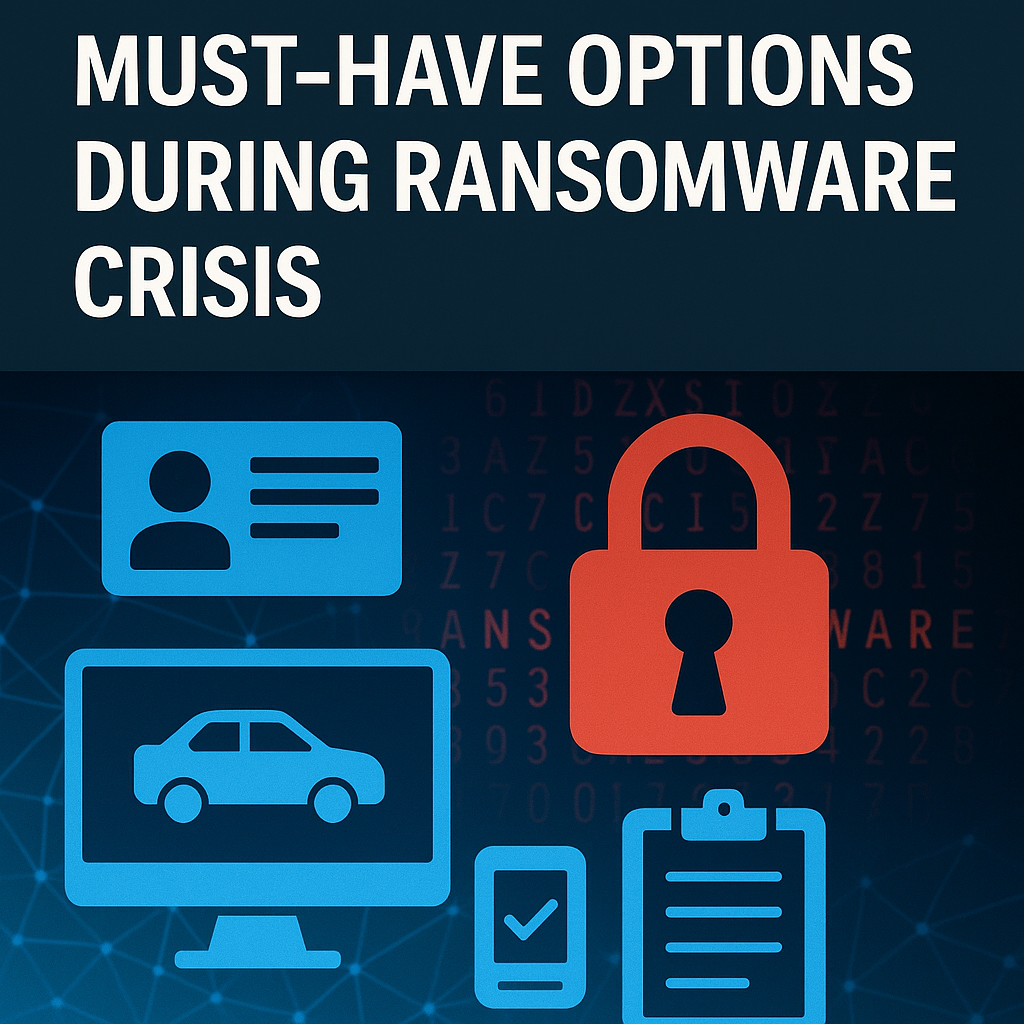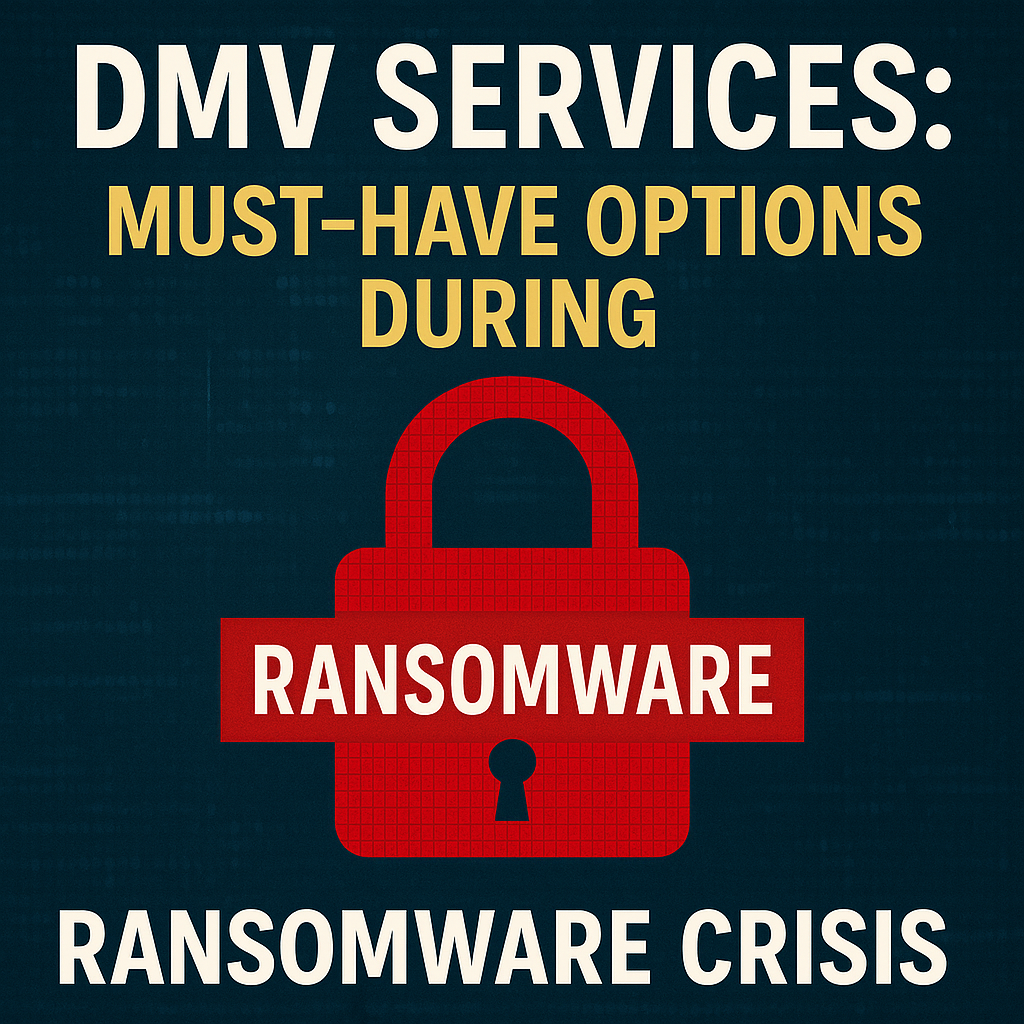DMV Services: Must-Have Options During Ransomware Crisis
DMV Services: Must-Have Options During Ransomware Crisis
DMV services play a crucial role in the daily lives of millions, and understanding the available options during a ransomware crisis can significantly aid those affected. As organizations increasingly depend on digital infrastructure, ransomware attacks pose significant risks, halting operations and leaving citizens in a lurch. In a recent high-profile case affecting Nevada’s Department of Motor Vehicles (DMV), essential services were disrupted for several days, highlighting the necessity of accessible alternatives and effective communication during such crises.
Understanding the Impact of Ransomware

Ransomware attacks can immobilize entire systems, as evidenced by the ongoing crisis faced by Nevada’s DMV. As reported by various sources, this attack has led to significant delays and limited access to key services. A wide array of operations, including vehicle registrations, license renewals, and more, have been impacted, throwing a wrench into essential processes that many individuals rely on.
According to the Review Journal, customers have been facing challenges in obtaining critical documents, forcing many to adjust their plans. Essential tasks such as vehicle ownership transfers and identification renewals have become increasingly difficult to navigate. The urgency of resolving this situation cannot be overstated as residents depend on DMV processes for everything from driving to voting eligibility.
Key Services Still Available
Despite the challenges posed by the ransomware crisis, the DMV has taken steps to mitigate the situation. While many physical offices remain limited in their capabilities, certain essential services may still be accessible through alternative means. Here are some options that residents can consider:
– Online Services: Although the attack has caused significant disruptions, some online features may remain functional, allowing users to complete tasks such as payment renewals and obtaining documents, albeit in a limited capacity.
– Phone Support: For those unable to navigate online options, reaching out through customer service hotlines can provide direct assistance. Agents may guide individuals through the process of addressing urgent needs, even if some services are temporarily unavailable.
– In-person Visits: While many DMV locations may be overwhelmed due to technical issues, visiting in person can sometimes facilitate faster resolution for pressing matters, as staff may have access to alternate processing methods or temporary solutions.
– Extension of Deadlines: Several reports indicate that officials are considering extending deadlines for license renewals and other time-sensitive services given the crisis’ impact. It’s crucial to stay updated on any announcements regarding such extensions through official DMV channels.
Challenges and Uncertainties Ahead
While certain services may be accessible, the situation remains fluid, and uncertainties abound. The Review Journal notes the ongoing effort to remedy the ransomware attack, but progress updates have been sporadic. Users are encouraged to remain patient while officials work towards a resolution.
Furthermore, customer sentiments have varied widely, with frustrations from the public evident in the face of prolonged delays. As the crisis continues, many citizens are left wondering not just about the current state of affairs but about the robustness of DMV systems against future cyber threats.
Attention to cybersecurity measures needs to be heightened to prevent similar issues in the future. A proactive stance can help not only in restoring services but also in instilling confidence among residents regarding the safety of their personal information.
Moving Forward: Building Resilience
The recent ransomware crisis at the DMV serves as a critical reminder of the evolving risks posed by cyberattacks. To bolster resilience, both the DMV and other governmental agencies must prioritize investing in advanced cybersecurity frameworks, employing technology that safeguards sensitive data while ensuring service continuity.
In addition to technological solutions, communication strategies must be reinforced to keep the public informed during emergencies. Establishing clear channels for updates and support can alleviate anxiety for those caught in situations where essential services might be temporarily unavailable.
The blending of traditional and digital service options can also create a more resilient DMV. As society continues to navigate technological advancements, finding balance will be key to maintaining functionality in the face of cyber threats.
Conclusion: Navigating the Future of DMV Services
The ransomware crisis affecting DMV services underscores the necessity for effective contingency planning in an increasingly digital world. Citizens are urged to stay informed on available options while voicing their concerns and needs during such disruptions. The path forward must involve not only addressing current issues but also developing strategies that anticipate similar challenges in the future. As the DMV works toward recovery, the resilience of both the agency and the public will ultimately determine the impact of such crises on society. By staying engaged and informed, individuals can better navigate the complexities posed by unexpected disruptions.





